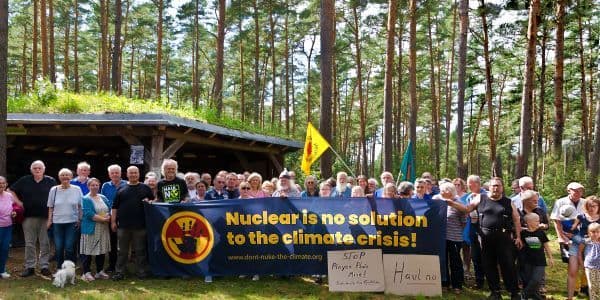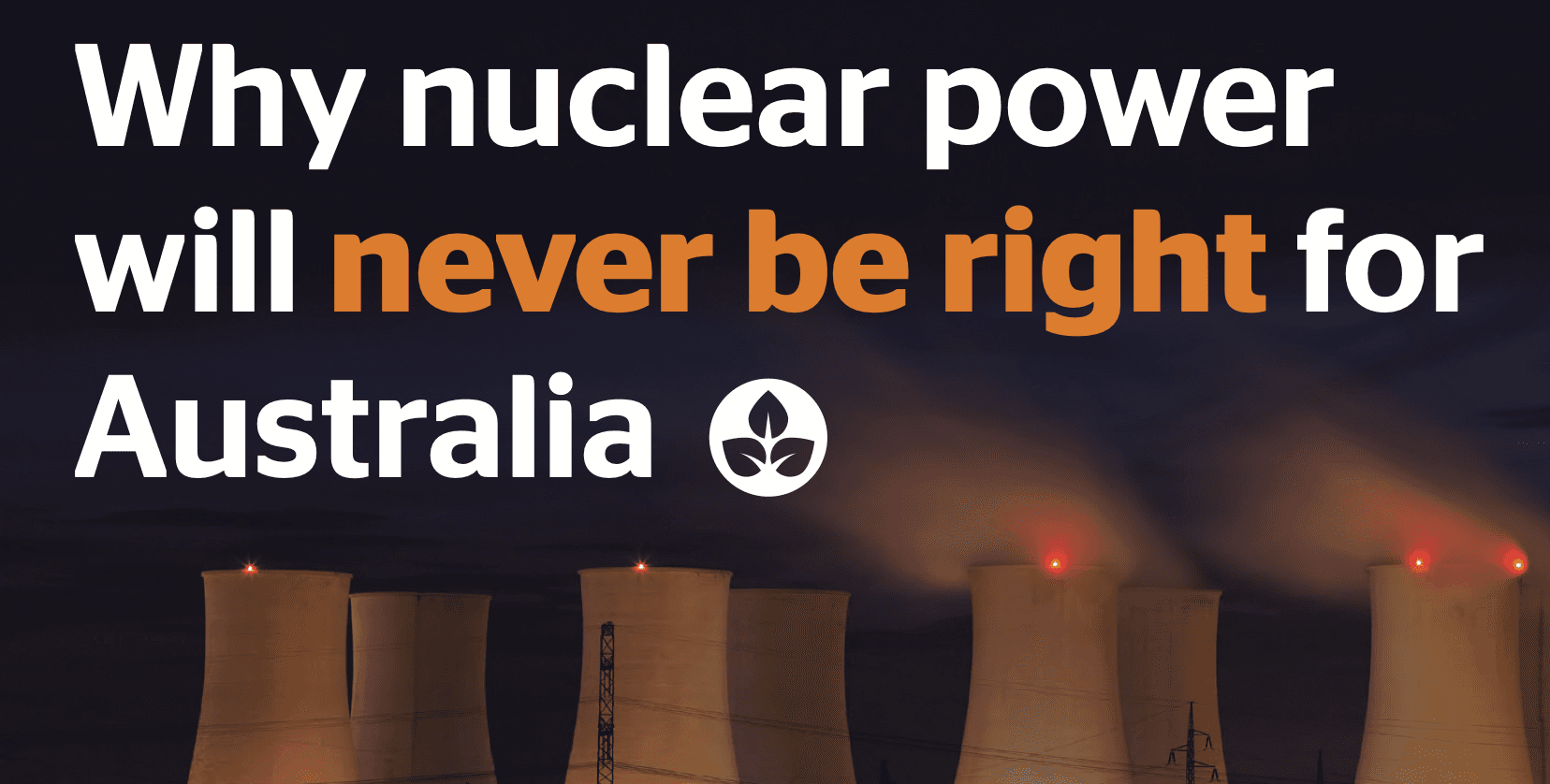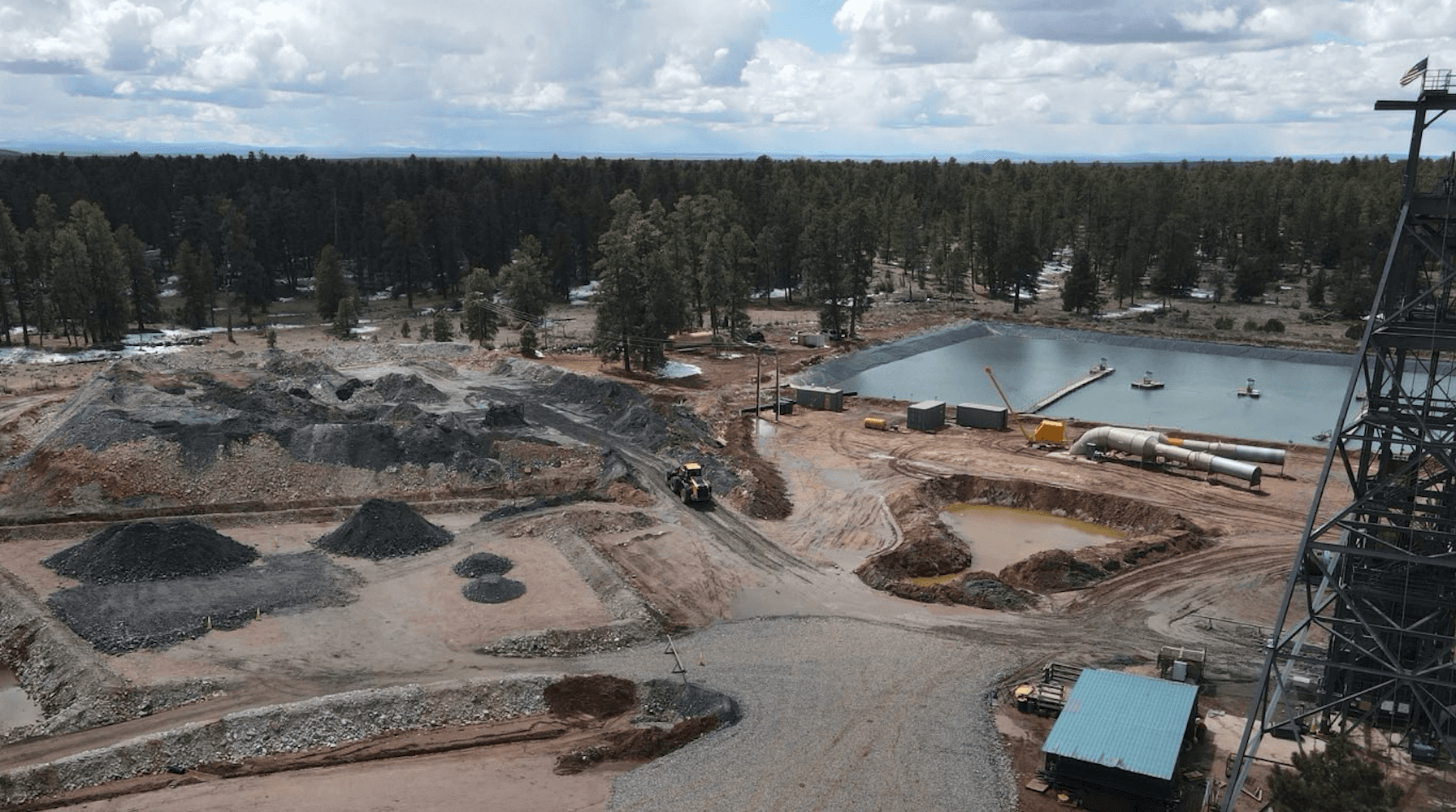COP 29
International Statement

by Tim Judson
One of the elephants in the room at COP29 is a pledge by a group of nations, led by the USA, to triple nuclear energy worldwide by 2050.
This elephant hasn’t exactly been silent, with noisy foot-stomping by the USA, backed strongly by a number of Friday’s other Fossil of the Day winners, and trumpeted heavily at COP29 by the International Atomic Energy Agency (IAEA) and industry-sponsored front groups like Nuclear for Climate. It hasn’t escaped ECO’s attention that six more nations have signed on to the distracting Declaration to Triple Nuclear Energy, launched by the US last year, bringing the total signatories to 31
Global North nations that have pushed back on an ambitious finance outcome at COP29 are at the same time using the Nuclear Expansion Pledge to seemingly hijack climatefinance for a corporate scheme.
One that would burden Global South nations with unsustainable debt, and unending streams of radioactive waste.
Last week, representatives of the World Nuclear Association and the IAEA stated at COP29 that an expansion of 1000 nuclear reactors would cost at least $5 trillion – and that financing would require governments to “de-risk” them. In other words, governments would need to bail out projects that run over budget, further draining climate finance accounts. The other problem is that nuclear power plants cost $10-20 billion in every country where costs are publicly known. If the Global North pushes Global South countries through the expansion scheme, it could steal upwards of $10 trillion of climate finance from serving the needs of climate justice.
While it sounds like a big deal, the nuclear expansion pledge is a smokescreen for the hijacking of climate finance to let rich nations hoard the funds they owe the Global South.
It would also undermine the landmark GST decision to triple renewables and double annual rate of energy efficiency improvements.
Tripling nuclear power by 2050 would result in less electricity than renewable energy already generated just in 2022. The first new nuclear plants that could be built under the expansion pledge would be online in 2035, making no contribution at all to the dramatic emissions reductions needed for 1.5C.
It is time to name the Nuclear Expansion Pledge what it is: a dangerous distraction and an ambition-killer.
Make Polluters pay Protest.
The Pro-Nuclear Lobby in Baku is So Desperate, They’ve Gone Bananas!
IRATI WANTI "the poison leave it" Karina Lester talks at Peace Boat Press Conference
AUSTRALIAN CIVIL SOCIETY STATEMENT FOR COP29 BAKU, AZERBAIJAN
NOVEMBER 2024
We, the undersigned Australian Civil Society organisations are united in support for the global clean energy transition and opposition to the nuclear industry playing a spoiling role in this transition.
Nuclear power is too slow, costly and inflexible to play any meaningful role in the global decarbonisation efforts. Nuclear also brings unique risks and long-lived wastes. Given the environmental, economic and human urgency of addressing climate change and advancing the energy transition the nuclear industry must not be allowed to cause the global diplomatic community any further delay Australia is moving purposefully away from centralised fossil fuel combustion and toward distributed renewable energy generation and storage. In 2024, 40% of Australia’s electricity is generated from renewable energy. This capacity is proven, delivering and expanding rapidly. Despite this, a coordinated campaign is currently being waged to undermine public support for this decarbonisation effort.
The last thing Australia needs now is nuclear distraction and delay.
We have been fortunate to learn from the world’s experience with nuclear power. We understand why its role in global energy systems and its contribution to global electricity production has been in decline for decades. Its legacy is one of underperformance, burgeoning cost, intractable health impacts and long-lived radioactive wastes. As the former Australian Chief Scientist Dr. Alan Finkel said, “Any call to go directly from coal to nuclear is effectively a call to delay decarbonisation of our electricity system by 20 years”. Australia, and the world, cannot afford this delay. We stand resolute in our support for real climate action through the clean energy transition and in our opposition to false nuclear promises. SIGNATORIES REPRESENTING AUSTRALIAN CIVIL SOCIETY, RELIGIOUS AND TRADE UNION ORGANISATIONS OVERLEAF
SIGNATORIES AS AT 11 NOVEMBER 2024
Alice Spring Peace Action Think Tank Antinuclear Australia Australian Conservation Foundation (ACF) Australian Council of Trade Unions (ACTU) Australian Manufacturing Workers Union (WA) Australian Nuclear Free Alliance (ANFA) Australian Rainforest Conservation Society Be The Change Australia Climate Action Network Australia (CANA) Conservation Council of WA Doctors for the Environment Australia Don’t Nuke the Climate Australia Electrical Trades Union National (ETU) Extinction Rebellion Australia (XR) Friends of the Earth Australia Friends of the Earth Adelaide Gene Ethics Network Greenpeace Australia Pacific Gundjeihmi Aboriginal Corporation Independent and Peaceful Australia Network (IPAN) Justice and Peace Office of the Sydney Catholic Archdiocese Just Peace Queensland Maritime Union of Australia Mineral Policy Institute (MPI) Nuclear Free Western Australia (NFWA) Oxfam Australia Peoples Climate Assembly Queensland Conservation Council Solar Citizens Uniting Church in Australia, Synod of Victoria and Tasmania Uniting Church Synod of NSW & ACT Victoria Trades Hall Council Vote Earth Now Wilderness Australia Wollongong Against War and Nukes
AT COP 28 in Dubai 22 States pledged to triple Nuclear Energy until 2050
In March 21. 2024 the international nuclear lobby, at the invitation of the International Atomic Energy Agency and the Prime Minister of Belgium, held a nuclear energy summit in Brussels. Events, like COP 29 in Baku will be used to push for more Nuclear Energy as a solution to the climate Crisis. We say no to all the false solutions. Our Future is renewable, not radioactive.
The international Campaign Don’t-Nuke-the Climate released the following Statement, signed by more then 600 NGO Worldwide.
Statement:
The nuclear lobby camouflages itself beneath a climate-friendly facade, hoping to divert massive sums of money away from real climate solutions, at the expense of people and the planet. At 2024 Summit for Future in New York in September, and later in November at COP 29 in Baku the international nuclear lobby lead by the IAEA will be pushing for their outdated technology again. The world faces multiple social, environmental and economic crises. People are worried about the cost of living, extreme weather events linked to climate change, and their energy bills. Lobbyists and politicians at the nuclear energy summit will present building new nuclear power plants as the answer, but this does not pass a basic reality check.
New nuclear power is too slow to tackle the climate emergency.
Nuclear power plants under development have been severely delayed and won’t be able to meaningfully contribute to cutting carbon emissions this decade. Whereas greenhouse gas emissions must be drastically cut by 2030 to limit global temperature rise to less than 1.5 degrees, any new nuclear plants announced today would not be connected to the grid until well past this deadline. New nuclear power plants are a distraction which slows down the energy transition. A rapid shift away from fossil fuels should instead focus on building a 100% renewable energy system coupled with energy efficiency and measures to avoid excessive energy use. Together, these steps can meet the world’s energy needs in a way that is fair, environmentally friendly, and achievable.
Nuclear energy is much more expensive than renewables.
While nuclear projects face huge budget overruns and cancellations due to sky-rocketing costs, renewables are cheaper than ever before, declining sharply in relative costs compared to nuclear. New nuclear power plants are up to nearly four times as expensive as wind power, according to the 2023 World Nuclear Industry Status Report. Governments need to invest in proven climate solutions, such as home insulation, public transport, and renewable energy, rather than expensive experiments, like small modular reactors, which have no guarantees of actually delivering.
Nuclear power is dangerous.
From mining for uranium to radioactive waste, nuclear power production is a risk to people’s health, safety, and the environment. Nuclear power can be used as military targets and increase the risk of spreading nuclear weapons across the world, the use of depleted uranium and atomic bombs. The climate crisis also increases the risks involved in nuclear power, as increased heatwaves, droughts, storms, and flooding all pose significant threats to the plants themselves and to the systems that aim to prevent nuclear accidents.
We are living in a climate emergency.
Time is precious, and too many governments are wasting it with nuclear energy fairy tales. What we demand is a just transition towards a safe, renewable and affordable energy system that secures jobs and protects life on our planet.


